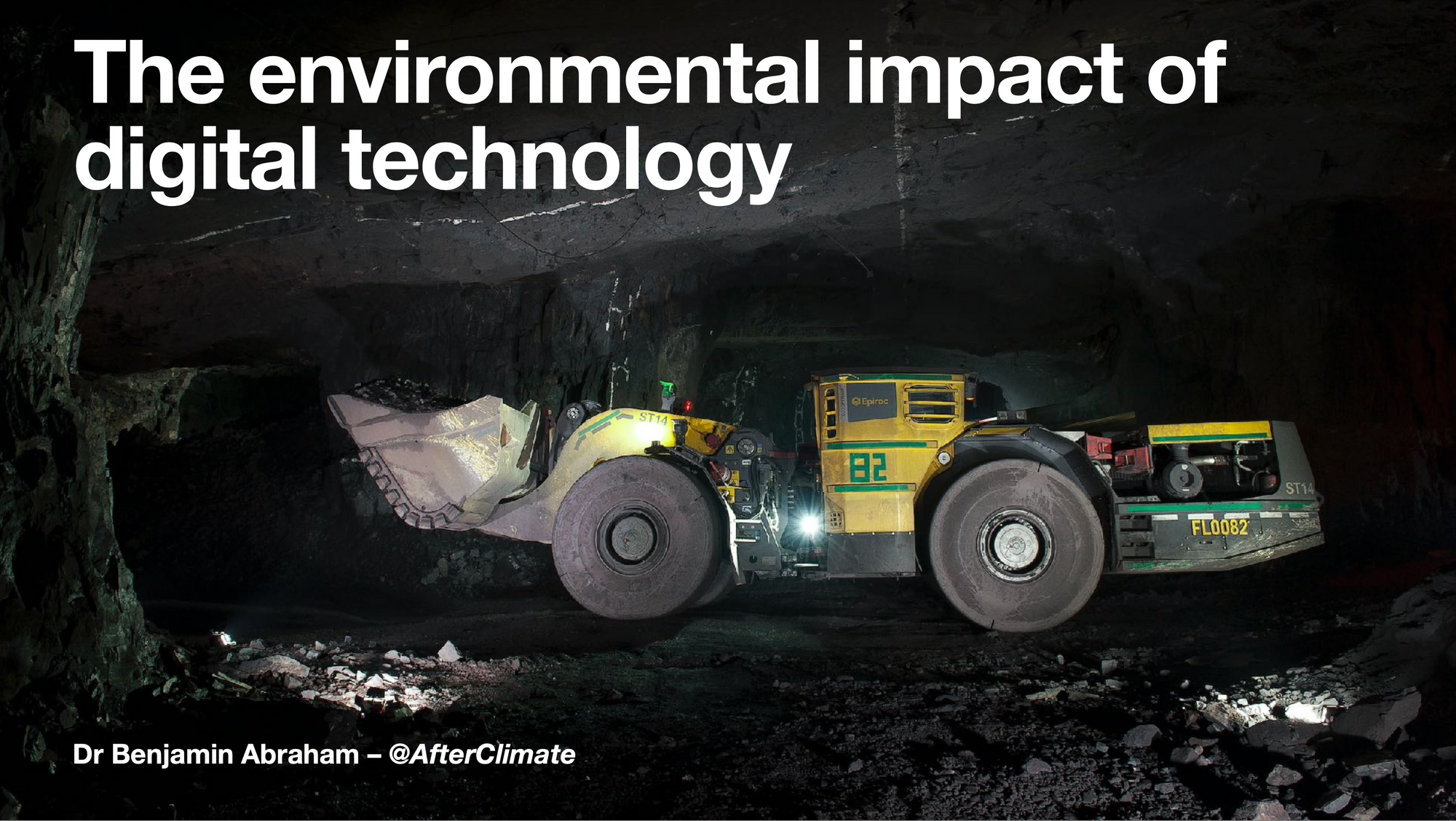A couple of talks about games, tech and their impacts

Its been an incredibly busy couple of weeks, and I came down with something nasty at the end of the last one – on the day I usually write my newsletter – so that's why its been a bit of a gap. But in the background I've also been working on something really, seriously cool – well cool for game and climate nerds. It's a snapshot of where the games industry is at in terms of net zero targets in 2022. It's at least another week or so away from being ready, but I am starting the sizzle for it now. I'm really excited to show it to you and explain what I think it says about where the games industry is at. It's a more optimistic and encouraging picture than even I would have imagined just a couple of weeks ago. So that's coming – maybe next week? We'll see.
In the meantime, I've got a couple of talks I thought might be of interest to GTG readers. The first is my GCAP talk titled 'What game developers can do to help save the planet' from last month – I linked to the slides in my MIGW summary post before (here they are if you missed them) but the video recording is now live on the conference's Vimeo page. It's password protected but shhhhh! If you don't tell anyone, I'll share the password with you. The password to watch it is "Ambition! at GCAP". Would love to know what you think.
The second is a lecture I was invited to give remotely by good friend, and fantastic comrade, Daniel Joseph who lectures at Manchester Metropolitan Uni. I didn't make a recording of my audio, unfortunately, but a PDF of the slides is here and they're fairly detailed (and have a nice long bibliography if you wanted to tuck in). It was really nice to be back 'in the classroom' so-to-speak. I always found lectures one of the more fun parts of my Uni career. It's a bit less fun not being able to see the audience and get their reaction live, but it was still a nice time.
The talk starts by tracing the roots of the contept of "the environment" back in time, back to the emergence of the modern environmental movement of the 60s and 70s, and back even further into the Romantic movement of the early-to-mid 1800s. This movement saw people like Henry David Thoreau and his book Walden, or A Life in the Woods (written while building his own cabin apparently) reacting to the first wave of the industrial revolution by rejecting it, in favour of a sort of back-to-the-earth impulse. That's sort of the originating motive for the modern idea of "the environment" as something "out there" in need of restoring or reconnecting to. It was as if modern society had placed "the environment" away from the sphere of our accidental, everyday encounters by concentrating people into cities, enslaving them to the cotton mills and factories of the time. You can sort of see why it happened. In this view though "the environment" is also something pristine, in need of preserving, maybe even saving, rather than encompassing a more fulsome vision inclusive of even the very things right outside our front doors. Today, in the better versions of environmentalism, we recognise that the environemnt is not some far flung environ untouched by human hands (none such exists!) and it is also your backyard, it's the very air we breathe.
Following thinkers like Timothy Morton and many, many others, I instead advocate for a turn to ecological thinking, rather than simply focus on "the environment". This sort of thought occurs whenever we recognise that there is no "away" for us to throw our shit and rubbish – there's just somewhere else, somewhere probably out of sight. Like a sewage treatment plant or a garbage dump. There's just stuff – moving around from one place to another and, crucially, when our discarded objects get to where they are going they don't stop acting on the world around them. TVs, iPhones, and stereos act on their surroundings even once they're thrown away – it just stops being about interruptions via sounds and noises and notification, and instead they intervene in landscapes of sacrifice by breaking down under UV radiation, by leaching heavy metals into soil and water, or by poisoning the air with toxic fumes as they burn.
There's also of course the entire pre-life of our "stuff" and digital devices – the mountainsides that get blown up, dug out, carted off to become the brushed aluminium of MacBook Airs, and so on. One of the most eye-opening parts of writing Digital Games After Climate Change for me was just getting the smallest sliver of a glimpse into this hidden world of minerals sourcing. The origins of our digital devices are elided by globe spanning supply chains – truly magnificent feats of logistical and operational planning – but ones that belch carbon and poison waterways. Being hidden from us consumers makes them no less real to the people and things that live nearby.
So that's the short version, the long version was a lot more going off on tangents and there's a few slides of an ewaste dump in Accra, Ghana to illustrate the point.
Hope you have a great week/end - it's very nice to have gotten a few more subscribers before the blue bird website switches off all the lights and makes everything just a little bit harder to find.